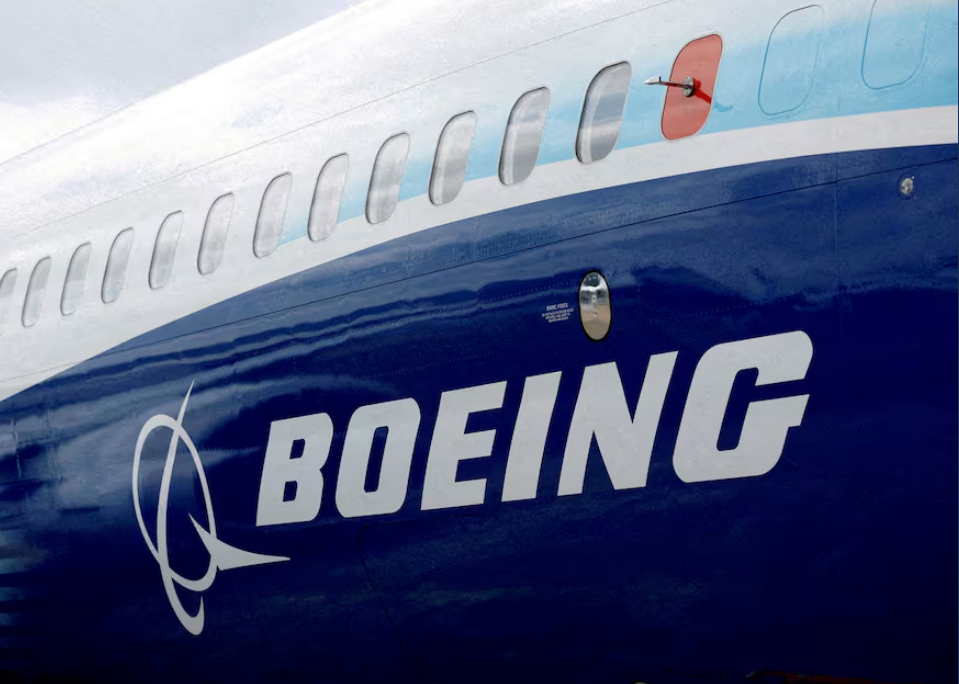Boeing on Wednesday named aerospace industry veteran Kelly Ortberg as its CEO to turn around the struggling planemaker after a quarter where it lost more than $1 billion.
Ortberg will start on Aug. 8 with the monumental task of rebuilding trust with regulators, the industry and the public during a quality crisis, and as its finance chief warned it would continue to burn cash.
Boeing has been mired in a reputational and safety crisis after a Jan. 5 mid-air cabin panel blowout on an Alaska Airlines-operated MAX 9 jet carrying 171 passengers.
The planemaker posted a loss of $1.4 billion on revenue of $16.9 billion, short of the consensus among analysts for $17.2 billion, according to LSEG data. It lost $2.90 a share, short of expectations for a loss of $1.97 a share.
Boeing CFO Brian West told an analyst call on Wednesday he expects cash usage in 2024 to be larger than previously thought and expects cash burn during the third quarter. The company’s free cash flow usage was $4.33 billion.
The CEO appointment lifted shares by 4.4% in a relief trade, despite the struggles across its businesses, including in defense and space. Ortberg will also have to revive production of the company’s strong-selling 737 jets from about 25 in June and July to 38 by year’s end.
The company’s crisis led to an executive reshuffle in which CEO Dave Calhoun decided to step down by the end of the year and board chair Larry Kellner said he would not stand for re-election.
Calhoun told analysts he didn’t think Ortberg’s arrival would lead to a big leadership overhaul at Boeing. Stephanie Pope, the head of Boeing Commercial Airplanes, was seen as a possible candidate to succeed Calhoun.
“My guess is he’s going to put his arms around Stephanie and the rest of the team in a big way and just try to support their work,” Calhoun told analysts.
Calhoun will be a special advisor to the board until March 2025, Boeing chair Steve Mollenkopf said on Wednesday.
Shortly after the January accident, the U.S. Federal Aviation Administration (FAA) barred Boeing from raising the production of its cash-cow 737 MAX family of jets above 38 a month, without estimating how long the limitation will last.
West said Boeing had been making aircraft far below that level during some weeks to plug quality gaps, confirming a Reuters report.
Wall street cheers appointment
A mechanical engineer, Ortberg, 64, has more than 30 years in aerospace and defense, including numerous executive roles.
“There is much work to be done, and I’m looking forward to getting started,” Ortberg said in a statement as Boeing waived its mandatory retirement age of 65 years for him.
After five years leading Rockwell Collins, he steered the company’s integration with United Technologies and RTX until his retirement from RTX in 2021.
“This is a strong and safe pick. We can appreciate Ortberg’s age may be higher than some investors would have liked to see. However, we believe Ortberg’s reputation at Rockwell Collins and United Technologies/RTX is strong,” RBC Capital Markets analyst Ken Herbert said in a note.
Ortberg’s experience in integrating acquisitions such as steering Collins through an $8.3 billion deal to purchase BE Aerospace in 2016 will face a fresh test at Boeing.
The planemaker is working to integrate Spirit AeroSystems into its fold after clinching a deal earlier this year to buy back the fuselage maker.
His appointment also addresses industry push for hiring an outsider to steer Boeing out of its troubles. He was chosen over Patrick Shanahan, the former Spirit Aero CEO who was seen as a favorite to succeed Calhoun by some analysts and investors. The company is set to be acquired by Boeing.
Defense business struggles
During the second quarter, Boeing delivered a total of 92 aircraft, down 32% from last year. It posted a loss of $2.33 a share, as its troubled defense and space business exacerbated the financial strain on the company.
The Defense, Space and Security unit, one of Boeing’s three main businesses, has lost billions of dollars in 2023 and 2022, which executives attributed to cost overruns on fixed-price contracts.
Such contracts have high margins but leave defense contractors vulnerable to inflationary pressures that have dented US corporate earnings in the last few years.
The planemaker used to bid aggressively for fixed-price contracts before the pandemic, but has now said it would pivot away from such contracts to stem losses at the business, which amounted to $1.76 billion last year.










